Still Kicking. And Thrusting. And Grinding.
In which Norm embraces the pleasures of Steven Soderbergh's MAGIC MIKE'S LAST DANCE.

It is a glorious day when I get to watch a new Steven Soderbergh movie, and now that Magic Mike’s Last Dance is out on disc, I get to write about it.
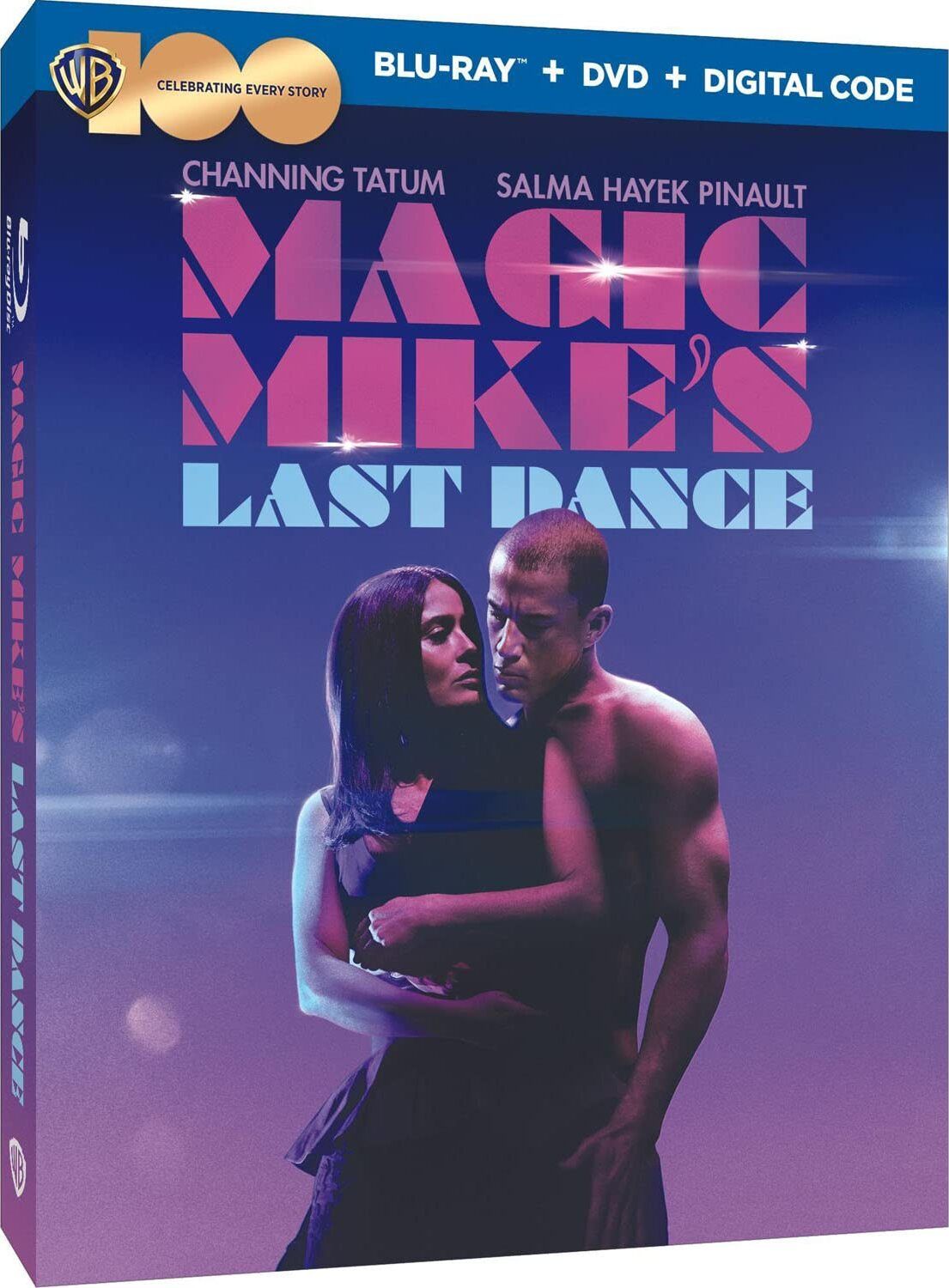
A few years ago, when Logan Lucky came out, I wrote one of those comprehensive filmography listicles about him and in the process realized Soderbergh had quietly become my favorite American filmmaker, and nothing has happened since to change that opinion. For more than thirty years now he’s made movies that make me ridiculously happy; I am on his wavelength, and he’s on mine, and it’s just a pleasure to reconnect with him every time he puts out new work. He never lets me down, and he always finds a way to surprise me.
With Magic Mike’s Last Dance, the surprise is that there’s another story to tell after Magic Mike and Magic Mike XXL. The 2012 original was a muted drama that treated exotic dancing as blue-collar work based on willing self-exploitation – as Soderbergh said on the press junket, it’s a movie about what people will do for money. The 2015 sequel, directed by Soderbergh’s longtime AD-turned-producing partner Gregory Jacobs, was packaged as the party the first film promised – a road-trip comedy that doubles as a last hurrah for Mike and his pals, and leaves them contemplating the end of their run in much the same way everyone gathered around the fountain at the end of that Ocean’s picture. It felt like there was nothing more to say, and I suspect there wasn’t … until Tatum and his choreographer Alison Faulk mounted a Magic Mike stage show in London, and Soderbergh went to see it.
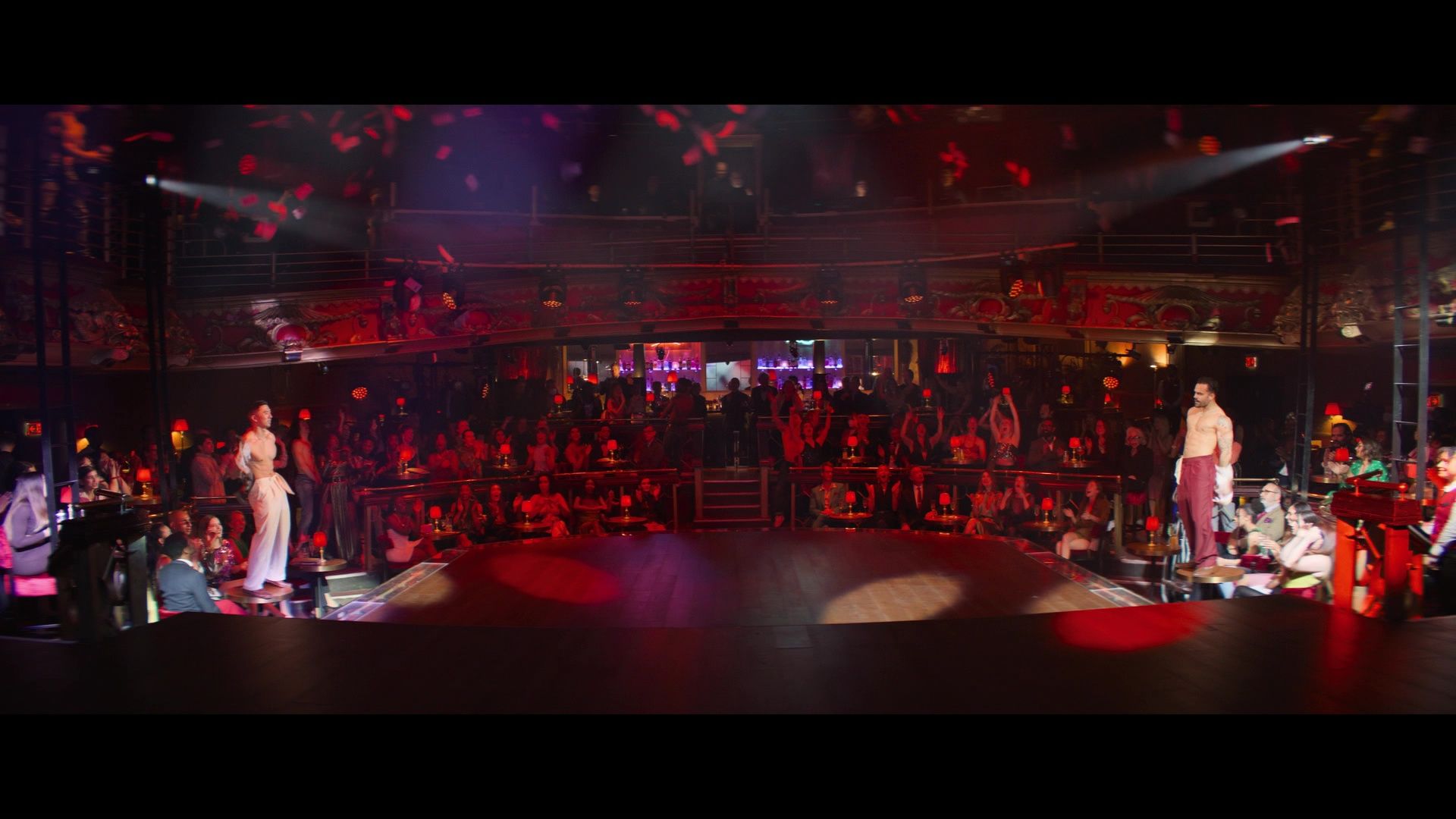
Magic Mike’s Last Dance - written, like its predecessors, by Reid Carolin – is a movie about how the stage show came to be within Mike Lane's fictional universe: Having seen his furniture business go under during COVID, Mike’s now working as a cater-waiter and bartender in Florida to pay back his investors. Those investors, of course, are his buddies from his stripping days, and they couldn’t care less about being made whole – but Mike sees it as a matter of principle: They believed in him, and he believes he let them down. But one evening, while he’s working a party, Mike meets someone he danced for back in the day, and that person recommends his services to Maxandra Mendoza (Salma Hayek Pinault, wonderful), a wealthy divorcée in need of a pick-me-up.
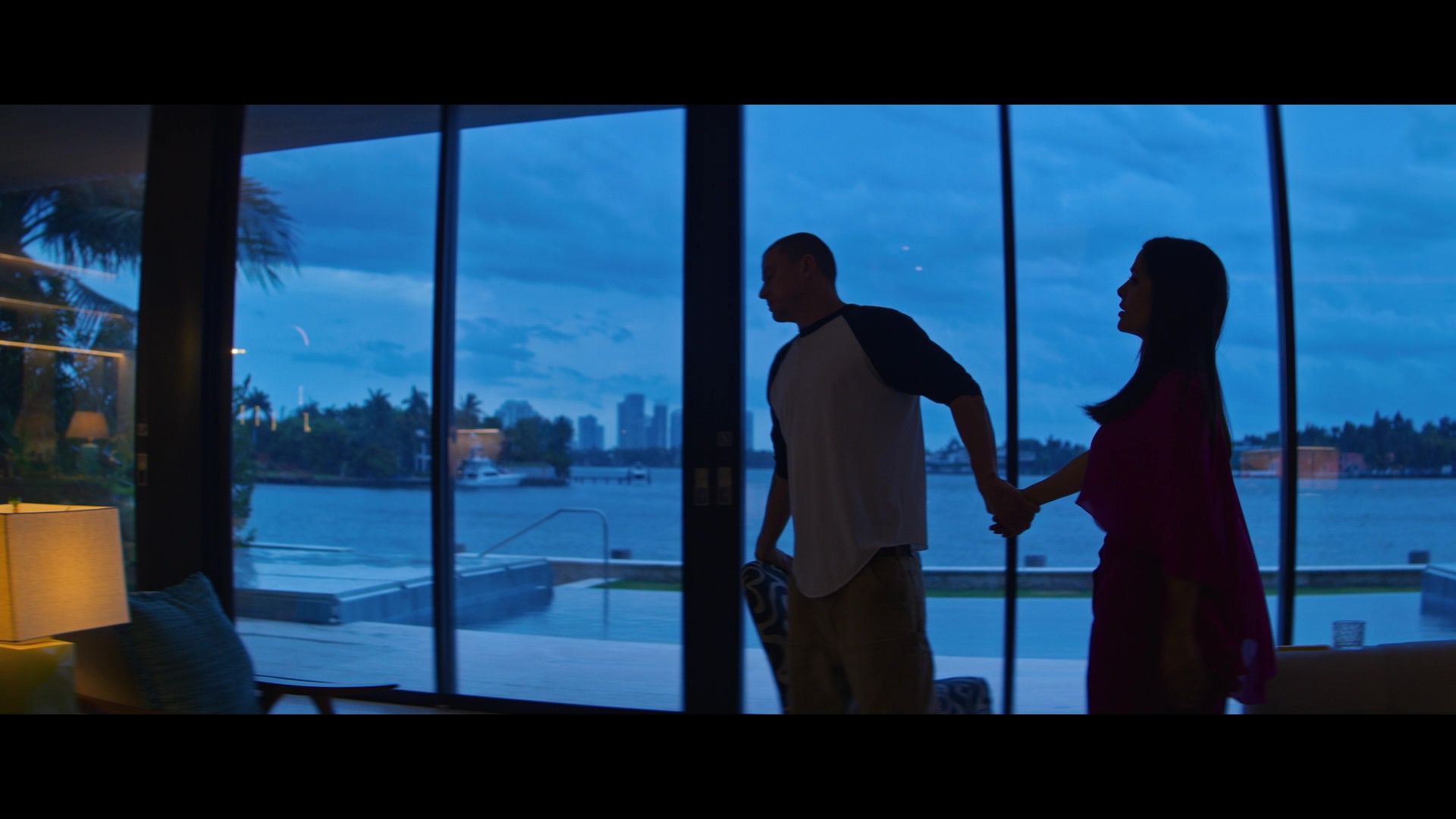
She offers to pay for a dance, he declines, she talks him into it – and it’s a life-changing experience for both of them, and not just because she takes him to bed afterward. Max reconnects with her best self, and offers Mike a job in London, directing a stage musical at her ex-husband’s family theatre. Story? Choreography? Max is sure he’ll figure that out. (“What about the third act?” someone asks him at one point. “Yeah, we’re gonna have one,” he confidently replies.)
It's Soderbergh’s version of a classic putting-on-a-show picture, but as Mike starts to build his revue – on the bones of some tired old drawing-room play called Isabel Ascendant, which even its star (Juliet Motamed) hates – he’s also challenged by a flurry of creative notes from Max, the complications of working in a fixed physical space and his own bouts of impostor syndrome. And I realized Magic Mike’s Last Dance is really about the compromises of going from the indie world to a studio production, where the money flows freely but every choice is questioned and litigated. Sometimes by actual lawyers.
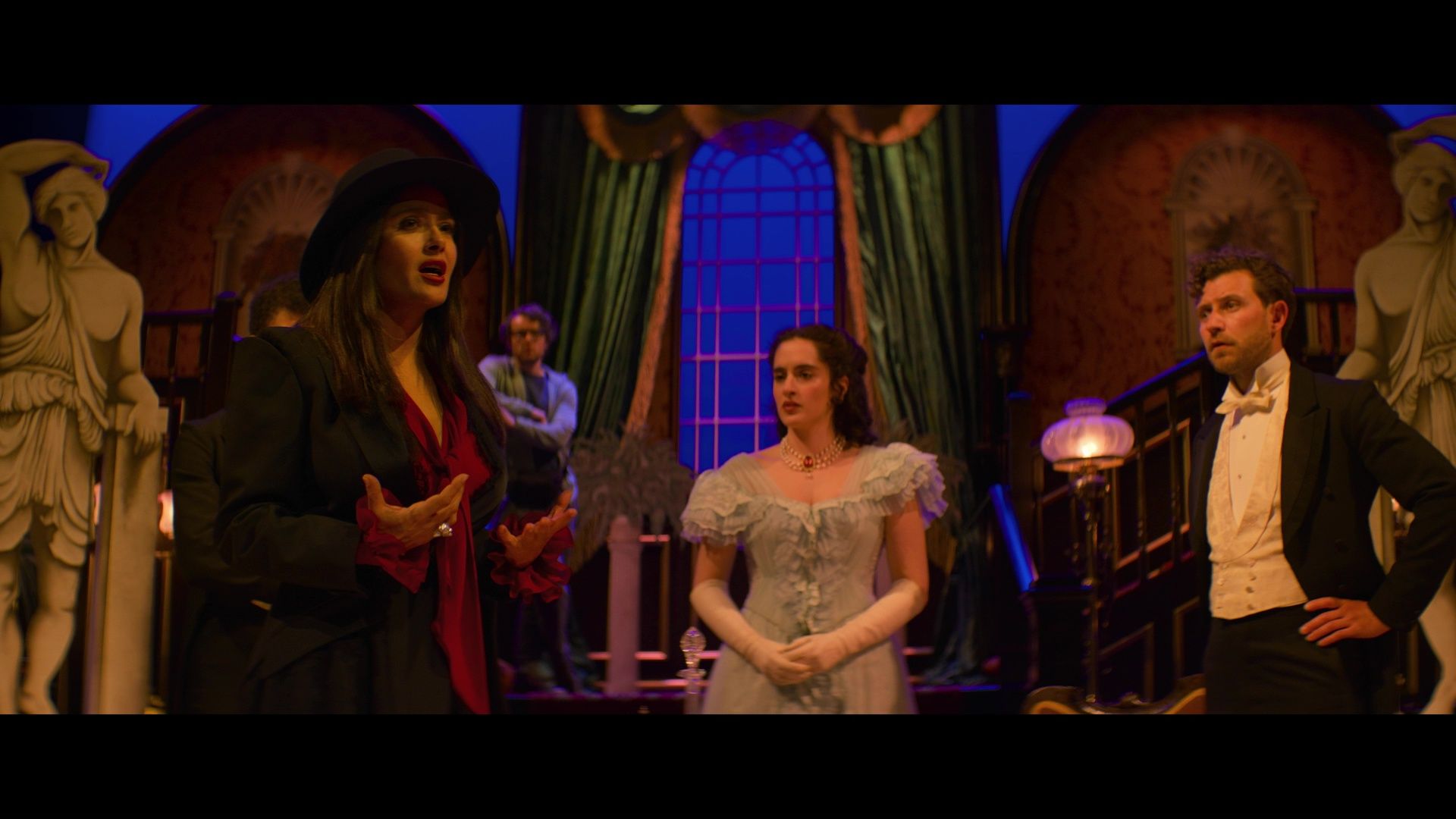
Soderbergh being Soderbergh, he also finds room to examine Max’ relationships with her daughter Zadie (Jemelia George) and her right-hand man Victor (Ayub Khan Din), and how Mike fits into them – or doesn’t. There’s also a low-stakes version of an Ocean’s surveillance and heist sequence that reminds us how incredibly fleet and playful a filmmaker Soderbergh can be … and, when we see a longer version of that sequence as a deleted scene, how economical he is, too. The extended version is delightful, but it’s also too much; he was right to pare it back to its essential moments. The movie’s about the stage show, and this was just a distraction.
If Magic Mike’s Last Dance is a celebration of stagecraft, it’s also a celebration of Tatum, who excels in roles where his ridiculous good looks and physicality can be elements of the story. Think of the Jump Street movies, where he’s allowed to be in on the joke of his own preposterousness; the Magic Mike films are quietly in awe of his talents as a dancer. That early scene where Max coaxes Mike into performing for her – and he starts setting up the room even as he’s politely declining – feels like the scene in a Superman movie where Lois Lane is badgering Clark Kent into admitting who he really is. Tatum did play Superman in the LEGO movies, you know. And I’d be willing to bet Soderbergh loves those.
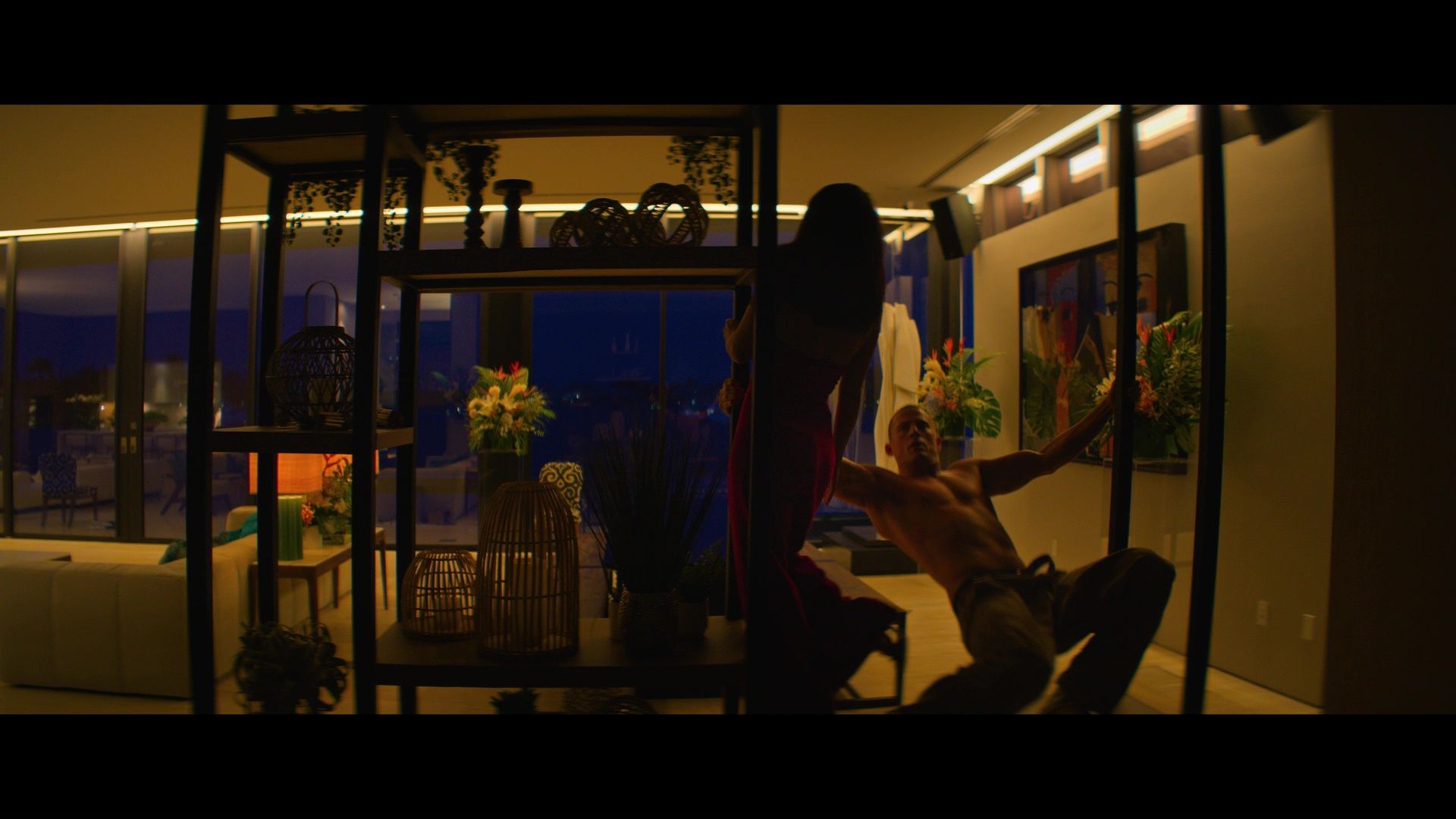
Magic Mike’s Last Dance was Soderbergh’s first theatrical release since Unsane, in early 2018; since then he’s been working for Netflix (High Flying Bird, The Laundromat) and HBO Max (Let Them All Talk, No Sudden Move, Kimi). This one was made for HBO Max as well, actually, but then the corporate shakeup of Warner Bros. Discovery shook it over to theatrical. (It’s also the only reason the movie’s getting a Blu-ray release rather than the basic DVDs offered for the other Max features; I hold out hope that Criterion is working on some sort of Soderbergh's Streamers boxed set or sets that’ll get those missing movies out on Blu-ray or even 4K.)
I’m very happy this one got a Blu-ray, because it’s a goddamn gorgeous picture; Soderbergh would be acclaimed as one of the industry’s best cinematographers if he’d just take credit for the shooting. Instead, “Peter Andrews” has once again done some spectacular work here, playing with color tones and dynamic framing while making it all feel casual and improvisational.
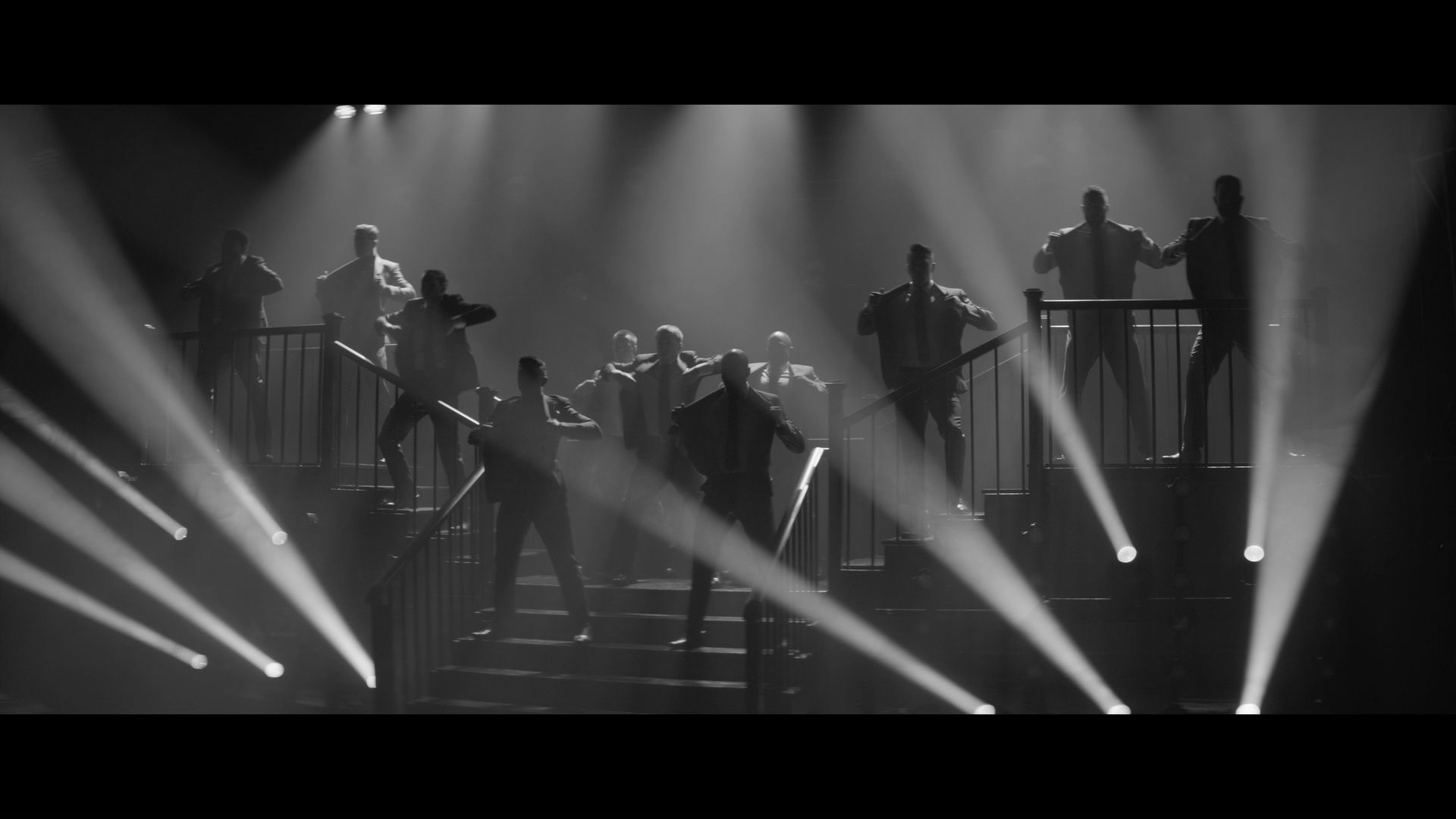
From the long takes of that first dance in Miami to the Golden Age influence of the climactic stage musical, Soderbergh outdoes himself; he knows so much of the appeal of the Magic Mike movies is in the performers’ physicality, and showcases it at every opportunity – while also subtly and not-so-subtly heightening the world around them. He calibrates the mood of every number for its own individual experience, lighting and editing (under his other pseudonym, Mary Ann Bernard) to the rhythms and the mood.
Each scene has at least one drop-dead gorgeous composition, and one understated scene of Mike and Victor fussing with a tie cuts to a shot of Mike outside a restaurant, tieless, that stops the movie dead in its tracks to appreciate how beautiful Channing Tatum is, just standing still. If the Ocean’s movies were about old-school glamour, the Magic Mike films are an exploration of a new masculine aesthetic: Buff, sure, but also flexible – in more ways than one – and attentive to one’s partner. Radical stuff, truly.
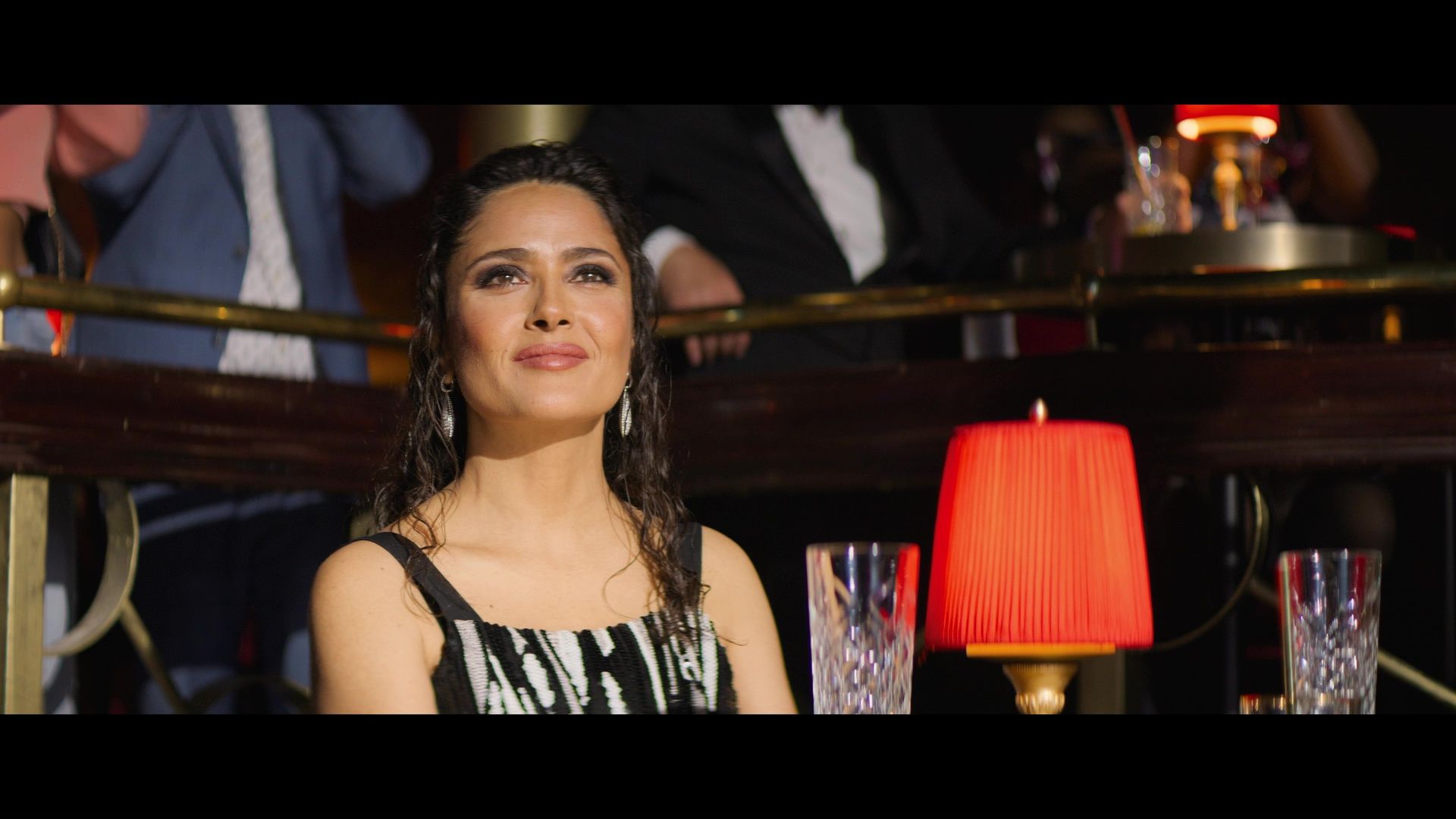
Magic Mike’s Last Dance is now available on Blu-ray and DVD from Warner Home Entertainment. It’s pretty swell.
In Sunday’s paid edition: The Haunting of Julia returns from limbo, and I finally dig into that box of Imprint discs. Upgrade that subscription! You don’t want to miss out.
